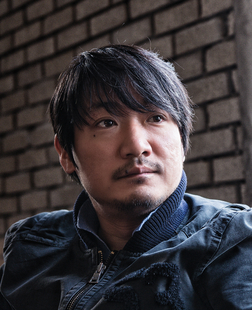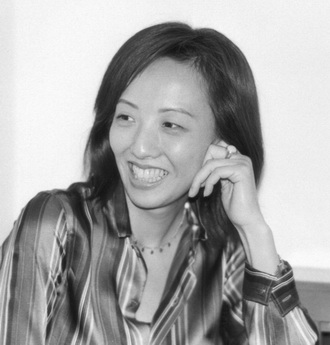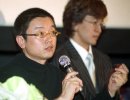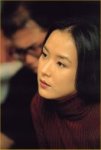Park Jung-bum (director/actor)
by Adam Hartzell

"I wanted to throw a question to the audience that with these kinds of people surrounding us, how should we live? What kind of life should we lead?..."
Yang Yong-hi (director)
by Adam Hartzell

"If I want to say, 'I hate the regime', but I cannot use that sentence in my documentary, then I would say, 'I hate my father's identity'. That's better and also safer for my brothers..."
E J-yong (director)
by Darcy Paquet

"Filmmakers from the 80s and 90s, like Park Kwang-su, Jang Sun-woo and Jung Ji-young, carry a great burden on their shoulders, in terms of history and politics... They can't free themselves from the weight of their generation's social issues. But directors in my generation feel free of such pressures."
Kang Su-youn (actress)
by Adrien Gombeaud

"In Aje, Aje Para Aje, for example, my character is raped and then marries the man who raped her. Of course from a feminist point of view, it's kind of shocking, but it's a Buddhist film that you must view from a religious perspective. It's a film about the Buddhist concept of the 'small vehicle'..."
Jang Sun-woo (director)
by Paolo Bertolin

"In Korea there are a lot of traditionally oriented ways of thinking, which means that there are lots of prejudices. These things might provoke painful situations for some people. I want to ask people whether they really think that such things are right, or whether instead we should try to change them..."
Kim Eung-su (director)
by Kyu Hyun Kim

"'Love' is presented in many movies as something romantic, pure and idealistic, abiding by the rules supposedly transmitted from our parents' generation. But in reality, love can be confusing and 'dirty,' because it is inevitably a product of our own selfish desires. ..."
Whang Cheol-min (director)
by Paolo Bertolin

"I believe that the arts bring out kindness in people. At the outset, the relationship between the policeman and the student is characterized by hostility, but by rehearsing Crime and Punishment, something changes and a kind of spiritual connection starts to bridge them..."
Byun Young-joo (director)
by Adam Hartzell

"[This] is part of the complicated situation in South Korea today that Byun wanted to show, how the traditional and Western exist at the same time. To make this world a better place, she feels it is necessary to break from traditional beliefs, because things have gotten stuck..."
Yoon Jong-bin (director)
by Paolo Bertolin

"When you start your military service, you are on the lowest level of the hierarchy. Many people think when they become senior officers they will not behave as their superiors did, but eventually the system leads us all to behave in the same way..."
Cha Ye-ryun (actress) and
Lee Choon-yun (producer)
by Kyu Hyun Kim

"I do find the Whispering Corridors films to be far more realistic than so-called 'realistic' movies about high school life, and the cast members contributed to making the characters realistic by drawing upon their own experiences..."
Kim Jee-woon (director)
by Paolo Bertolin

"It often happens in life that big tragedies originate in something really small. Most people tend to look for explanations only in bigger, visible events, while overlooking smaller, apparently insignificant happenings..."
Kim Tae-yong (director)
by Darcy Paquet

"I had a lot more fun when I was shooting Family Ties. I felt much more comfortable. With Memento Mori, I wanted so much to make an outstanding film, it was like having a knife stuck in my chest..."